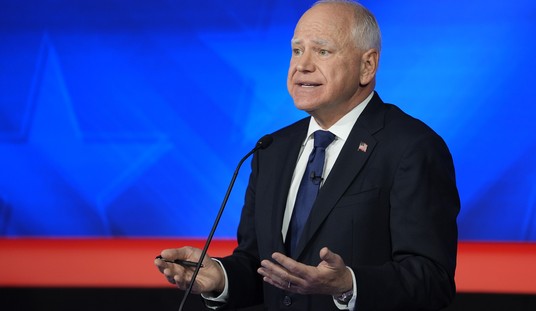For a while now, we’ve heard a lot of people claiming that gun violence is a public health issue. They argue that it’s not about policy, but safety, and that means we should direct a lot of resources in very specific places.
However, Lindsay Kaiser, writing at The Michigan Review, sat in on a discussion of public health and guns recently, and what she encountered is rather fascinating.
As I sat in the Ford School of Public Policy, I waited with baited breath for the magic phrase to be uttered that would indicate some semblance of bipartisan consideration. To my dismay, it took an hour and fifteen minutes for “the Second Amendment” to grace the stage at the Institute for Firearm Injury Prevention lecture on September 22. Instead of acknowledging the initial premise that firearms are constitutionally protected, the lecturers launched straight into touting federal policies that pick and choose who deserves to keep their right to bear arms.
But Michigan isn’t known for protecting the rights of its students, particularly when it comes to firearm ownership. Its blanket prohibition on firearms applies to all property owned by the University of Michigan system, even if individuals have Michigan concealed carry licenses. It is ironic that the University would sponsor a talk on firearm injury prevention when its own students and community should, in theory, have no interactions with guns. Furthermore, little mention was made of the firearm violence issue in Detroit; Baltimore, New Orleans, and New York were the areas of focus at the symposium.
But my greatest disappointment with the lecture was that most of the presenters failed to share firearm safety tips and good ownership practices. No effort was made to educate the audience on safe storage, high-magazine capacity bans, or the constitutionality of red flag laws. In fact, the crowd was treated as though we had never operated a gun and simply hoped to remove guns from society by all legal means necessary.
In fact, every single speaker brought up proposed some level of gun restriction. Even one from Johns Hopkins who acknowledged that gun ownership was a right. He also thought we should require mandatory training and gun licensing in order to exercise that right.
Every single bit of “public health” here is focused on policies that, frankly, don’t do what proponents claim they do.
Kaiser points out that many of these proposals were trotted out in the wake of Uvalde, yet none of them managed to make it into the bill that actually passed. She notes that if they can’t pass it when Democrats control Congress, how are they going to get them passed at all?
It’s a fair point.
If this were really about public health, and I’m willing to entertain the possibility of viewing it in such a way to a certain degree, then it should be about things that can actually be accomplished. I get wanting to achieve pie-in-the-sky measures, but since those aren’t happening, what can be done now?
That’s absent in this discussion, apparently. It’s mostly about gun control and little else.
What about education? What about tax breaks for gun safes? Grants for police departments to offer safety training to the public?
We could delve into mental health efforts as that could reduce both suicides and mass shootings, but that seemed largely absent. We could talk about the need for education and jobs, both of which have long been understood to be underlying causes of violent crime.
There’s a plethora of options that could have been discussed, but it seems public health is just a smoke screen to try and sell gun control.
It’s a tool they’re going to use to attack critics of such measures, much as they already have been. They’ll accuse us of wanting to see more people dead, even though none of the things being talked about at this level will ever see the light of day on the national stage as things currently stand.
And it’s why claims of this being a public health crisis need to be attacked at every opportunity. If I believed them, I wouldn’t, but it’s clear that they’re using it as a pretext. It’s not about helping anyone except themselves.








Join the conversation as a VIP Member